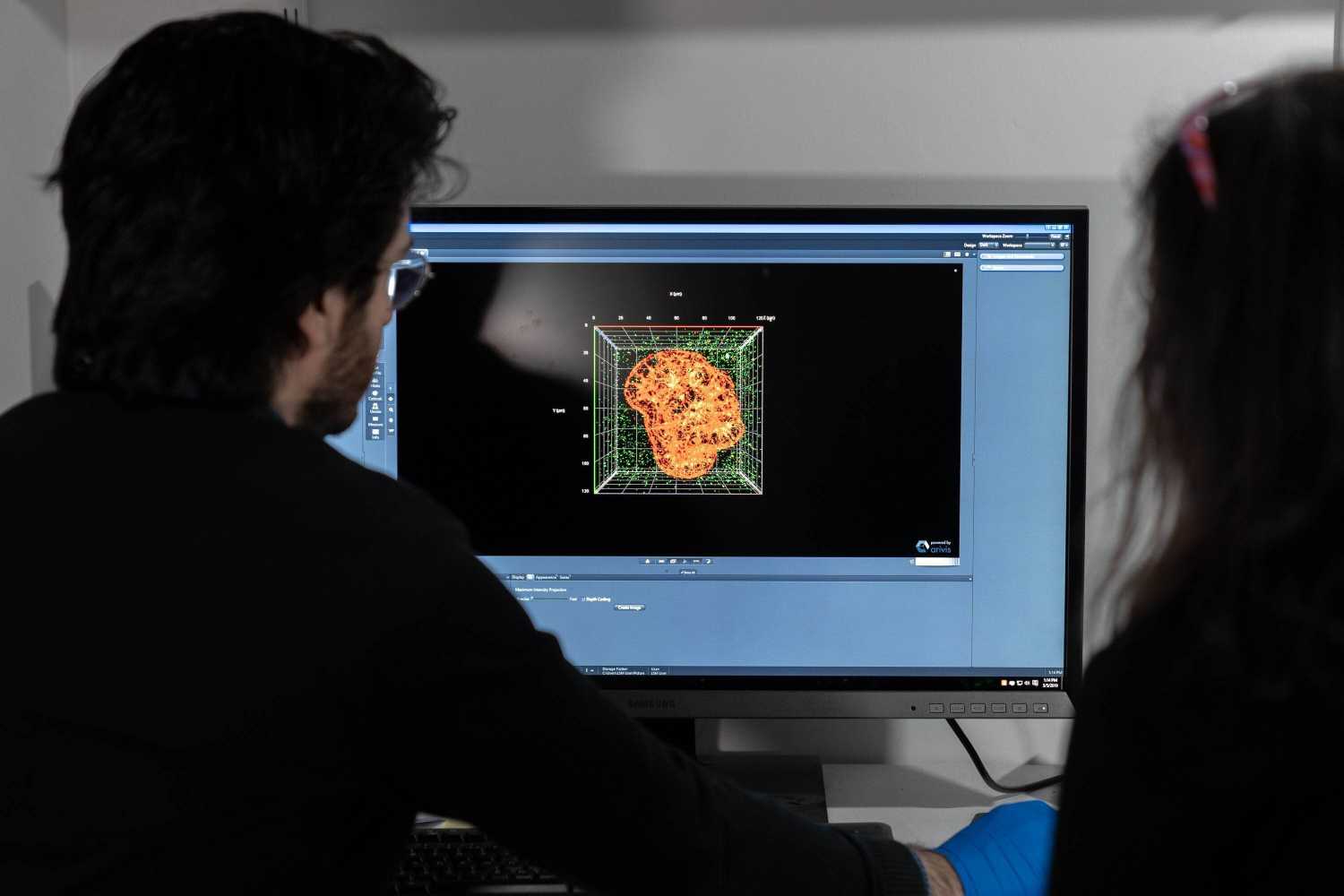Cholesterol-lowering meds have potential to downgrade COVID-19's threat to that of the common cold

Nahmias’ Lab at Hebrew University’s Grass Center for Bioengineering. Credit: Daniel Hanoch
Could a simple drug that has been on the market for decades be used to treat COVID-19? A research team led by Hebrew University of Jerusalem (HU)'s Professor Yaakov Nahmias says that early research looks promising; their findings appear in this week's Cell Press Sneak Peak.
Over the last three months, Nahmias and Dr. Benjamin tenOever at New York's Icahn School of Medicine at Mount Sinai have focused on the ways in which the SARS-CoV-2 changes patients' lungs in order to reproduce itself.
Their major finding? This virus prevents the routine burning of carbohydrates. As a result, large amounts of fat accumulate inside lung cells, a condition the virus needs in order to reproduce. This new understanding of SARS CoV-2 may help explain why patients with high blood sugar and cholesterol levels are often at a particularly high risk to develop COVID-19.
Viruses are parasites that lack the ability to replicate on their own, so they take control of our cells to help accomplish that task. "By understanding how the SARS-CoV-2 controls our metabolism, we can wrestle back control from the virus and deprive it from the very resources it needs to survive," Nahmias explained.
With this information in hand, Nahmias and tenOever began to screen FDA-approved medications that interfere with the virus' ability to reproduce. In lab studies, the cholesterol-lowering drug Fenofibrate (Tricor) showed extremely promising results. By allowing lung cells to burn more fat, fenofibrate breaks the virus' grip on these cells, and prevents SARS CoV-2's ability to reproduce. In fact, within only five days of treatment, the virus almost completely disappeared.
"With second-wave infections spiking in countries across the globe, these findings couldn't come at a better time," said Nahmias, and global cooperation may provide the cure. "The collaboration between the Nahmias and tenOever labs demonstrates the power of adopting a multi-disciplinary approach to study SARS-CoV-2 and that our findings could truly make a significant different in reducing the global burden of COVID-19," tenOever added.
While there are many international efforts currently underway to develop a coronavirus vaccine, studies suggest that vaccines may only protect patients for a few months. Therefore, blocking the virus' ability to function, rather than neutralizing its ability to strike in the first place, may be the key to turning the tables on COVID-19. "If our findings are borne out by clinical studies, this course of treatment could potentially downgrade COVID-19's severity into nothing worse than a common cold," Nahmias concluded.
Hull
East Riding Of Yorkshire
HU5 3TG